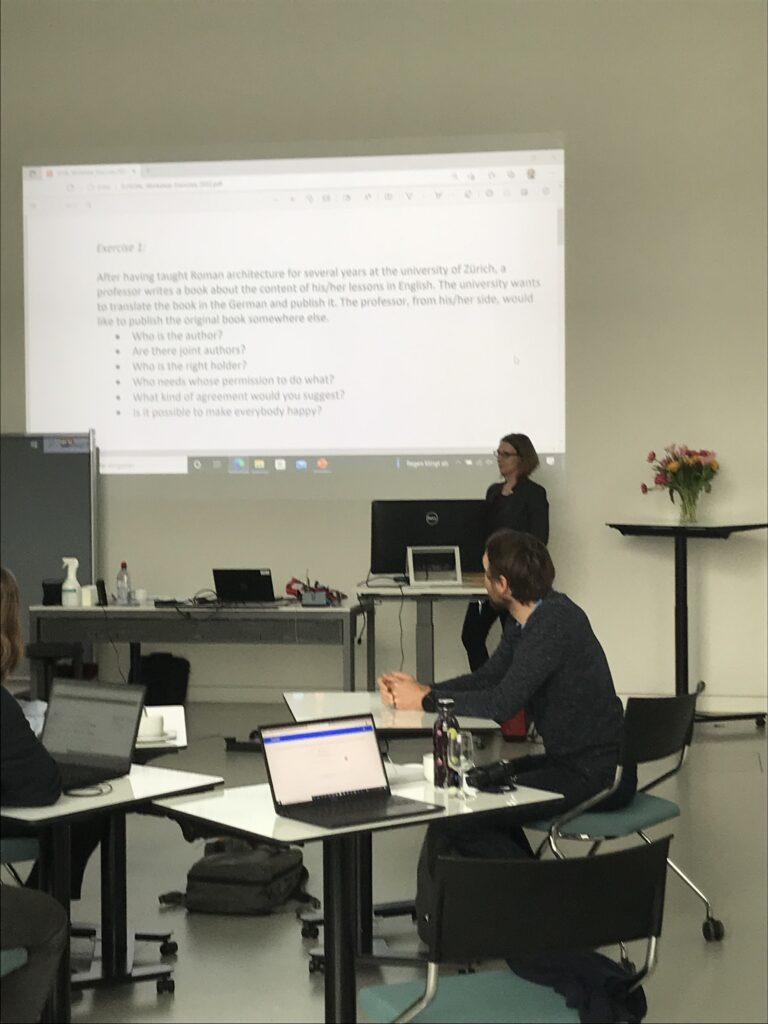To publish Open Access does not mean simply uploading a publication and making it freely available on the Internet. Much on the contrary, the different roads to proper Open Access publishing are marked by legal frameworks to ensure that all involved parties – the authors, their funders, the publishers, the libraries, the readers – are on the safe side.
The GOAL project, committed to promoting the Green Road, pays special attention to this dimension of Open Access. One of the project’s main goals is to promote the adoption of Green Open Access policies by different regional and Swiss-based publishers. As the OA-EASI project showed, many publishers of small and medium size cannot flip their journals to “Gold” or “Diamond” Open Access. Their way to participate in the Open Access movement has thus to be the “Green” one. In other words, secondary publications become central to them and so do the rights regarding this kind of publication.

On the 07th of April, the team members of the GOAL project met with Anna Picco-Schwendener and Suzanna Marazza from CCdigitallaw for a one-day workshop on copyright issues. The event took place at the ZHAW University Library’s premises in Winterthur.
The morning session began with an overview of what copyright is and what it protects. Issues such as the differences between authors and right holders or the kind of rights that can be transferred were also presented and commented on.
Later on, the event focused on Creative Commons Licences (CC Licences) and how they can be used for Open Access. Finally, the afternoon session took a closer look at the content of agreements between authors and publishers.
The event was in English, but the discussions immediately reflected the multilingual nature of the country and the topic. One of the discussed questions was the challenge of dealing with copyright issues in different languages Open Access specialists face; many times, decisive concepts embed entire lines of thinking on the matter. For instance, the term “copyright” focuses on the rights related to the created work, whereas the German term “Urheberrecht” puts the emphasis on the creator of the work. Open Access specialists working in a multilingual country become necessarily cultural interpreters and mediators.
